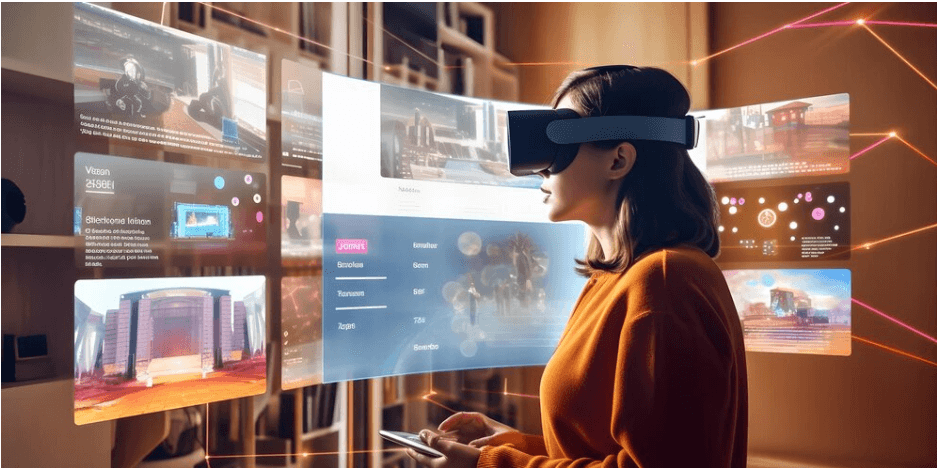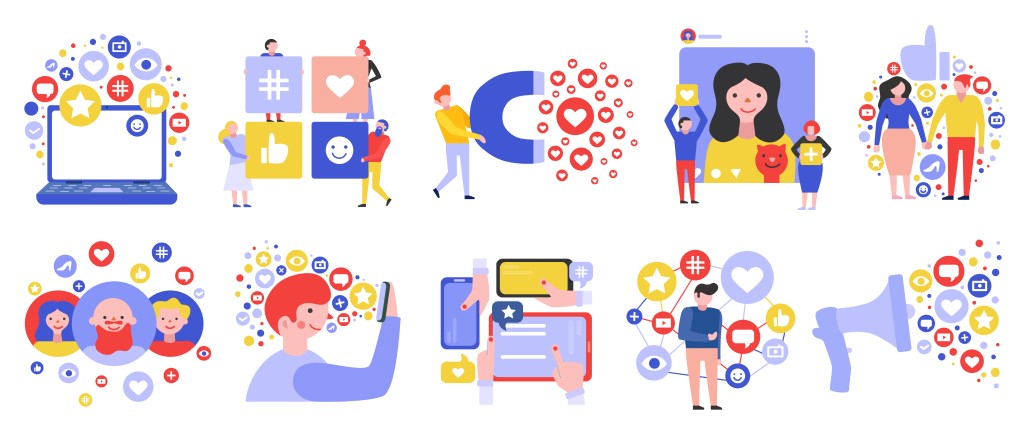
The world of content marketing is highly dynamic and ever-transformative, all thanks to the ever-changing demands of the industry which constantly come and go! Anyone working in the industry has to keep up with the latest trends and developments. Marketers need to keep a tab on the most popular digital marketing trends as well.
With the rise of AI as one of the key aspects of the latest marketing trends in 2023, content marketers will now have to face much higher competition as the rate of content generation has surged to a great extent. Along with that, the factors that enhance audience engagement change constantly as content is integrally related to both marketing and advertising industries.
We will help you stay on top of content marketing trends in 2023 through this write-up. Knowing the most popular and effective things in the field of content marketing services is pretty much the key to success with your content marketing campaign.
So let’s dive in!
Personalization and Audience Segmentation
Personalization remains the cornerstone of effective content marketing strategies. By harnessing data insights, brands can create tailored content that directly addresses individual preferences and needs. This fusion of audience segmentation and personalized content delivery nurtures a profound connection between brands and consumers, enhancing engagement and conversion rates.
If we talk about the key highlights of this booming content marketing trend in 2023, then here are a few points:
- Hyper-Personalized Content: Content is tailored to individual preferences, behaviors, and demographics, creating a unique experience for each user.
- Predictive Analytics: Advanced data analysis predicts user preferences, enabling brands to deliver relevant content before users even realize they need it.
- Dynamic Content Blocks: Websites display different content blocks based on user segments, ensuring visitors content aligned with their interests.
- Location-Based Personalization: Content adapts to the users’ geographic location, offering location-specific information, promotions, and recommendations.
- Behavioral Triggers: User interactions trigger specific content, such as personalized recommendations based on past browsing or purchasing behavior.
Interactive Content
The call for enhanced engagement has thrust interactive content into the spotlight. A trend that has been going on in 2023 is that business-focused and detached content materials are losing relevance. Interactive quizzes, polls, surveys, and calculators beckon active participation from users, fostering an immersive brand-consumer bond. This trend not only elevates user experience but also offers invaluable data for refining content strategies.
Marketers have to now ensure that content marketing services they are offering and the strategies they are working with help create empathetic and human-focused content that connects with their audience. It must be optimized to meet user search intent and also offer real and useful information to the audience.
Augmented Reality (AR) and Virtual Reality (VR) in Content Marketing
The convergence of AR and VR technologies with content marketing unlocks unparalleled user experiences. Brands can transport their audience to virtual realms, inviting them to interact with products and services in realistic settings. This trend not only captivates but also empowers consumers to make informed decisions.

Key aspects of AR and VR in content marketing include:
- Virtual Try-On Experiences: Brands employ AR and VR to enable customers to virtually try products before purchasing, enhancing the online shopping experience.
- Interactive Product Demos: AR and VR empower immersive product demonstrations, allowing users to explore features in a dynamic way.
- Virtual Showrooms: Brands create digital showrooms, offering customers a lifelike walkthrough of their products and services.
- Emotionally Engaging Narratives: AR and VR elevate storytelling by transporting users into narratives, creating emotional connections with the brand.
- Enhanced Brand Engagement: Interactive AR and VR content captivates users, fostering a lasting impact and increasing brand engagement.
User-Generated Content (UGC)
Authentic voices take center stage through User-Generated Content (UGC). In the realm of User-Generated Content (UGC), your customers become storytellers. Their authentic narratives, shared willingly, amplify your brand’s credibility as their voices endorse your offerings. Encouraging customers to share their experiences and stories helps establish a sense of community and trust. Leveraging UGC not only expands the brand reach but also bolsters credibility through genuine customer endorsements.
Content Distribution and Promotion
In today’s competitive digital environment, achieving proficiency in the realm of content distribution and promotion is absolutely crucial. Leveraging a wide array of channels, ranging from social media platforms to partnerships with influencers, becomes the cornerstone of ensuring that your content strikes a chord with your target audience precisely when it matters most. Employing a well-thought-out distribution strategy not only boosts visibility but also magnifies the influence of your content. And at the core of this strategy lies the art of WordPress website development, which is essential for crafting an online presence that effectively conveys your message and engages your audience.

Ethical and Sustainable Content Marketing
Consumers gravitate toward brands that champion ethical and sustainable practices. Content marketing that aligns with these values deeply resonates with conscientious audiences. By advocating for causes and sustainability, brands forge profound connections and leave a positive imprint on society.
AI and Automation in Content Creation
AI has to be one of the most revolutionary content marketing trends in 2023, which will not just affect the content marketing industry but will also spread its effect across a range of other industries all across the globe. It has now become possible for marketers to interact with technology in a conversational way, through the likes of ChatGPT, Google Bard, and the OpenAI platform. Just to assess the level of popularity, ChatGPT reached 100 million monthly active users within two months of its launch.
AI-driven tools are revolutionizing content creation. From automated copywriting to data-driven insights, AI streamlines content generation processes, enhancing efficiency and precision. This trend empowers marketers to focus on strategic thinking while leveraging AI for data analysis, content curation, and personalized messaging.
Conclusion
As we navigate the intricate terrain of content marketing trends in 2023, the potential for innovation and engagement is boundless. From personalization to AI integration, these trends guide brands toward digital prominence and lasting connections with their audiences. By staying attuned to these trends, businesses wield the power of the evolving digital marketing landscape to their advantage.
Images by Freepik.